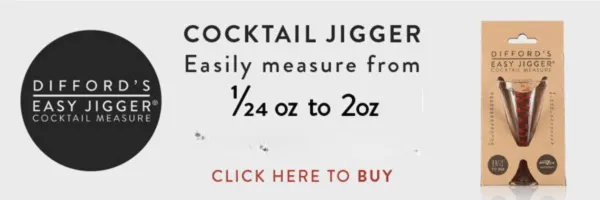More about Elyx
Established: Not supplied
Owner: Pernod Ricard Group
Capacity: Not supplied
Visitor Policy: Not generally accessible
Tel: +46 (0)44 28 80 00
Address
Åhus
296 31
Sweden
Production of Elyx vodka from grain to bottle occurs within a 15 mile (25 kilometre) radius, each step overseen by Master Distiller, Krister Asplund. The crafting of Elyx is also distinct from other vodkas due to the use of single estate wheat and copper catalyzation in both the spirit and rectification columns, the latter being a vintage still from 1921.

Wheat field on Råbelöf Estate (Photo: Absolut Elyx)
Single estate wheat
"You can't make a silk purse out of a sow's ear". When Master Distiller, Krister Asplund set out to make Elyx he chose the wheat this new vodka was to be made from very carefully, selecting a local farm which, he knew from 30 years of buying wheat for Absolut, consistently supplied the best quality grain. Hence, all the wheat used to make Elyx comes from a single estate, the Råbelöf Estate. Described by the brand as being "One Source", this is comparable to single estate wines where the impact of the land on the final product is described as terroir - a sense of place affected by soil, microclimate, topography and local farming traditions.

The winter wheat used is planted in September and harvested the following August. The Råbelöf Estate's very heavy clay soil retains minerals and water, allowing the wheat's root system (which can grow up to two meters deep) to access nutrients, even during periods of prolonged drought, so no irrigation of the fields is required. The wheat used is a different variety to that used to make bread and its worth comparing the 11-month growing cycle of this winter wheat to the four-month growing cycle of American spring wheat.

Ear of winter wheat
Fun fact: Each square metre of field yields one kilogram of wheat grain, which makes one bottle of Absolute Elyx.
Mashing and fermentation
Once harvested the wheat from the Råbelöf Estate is transported 15 miles to Absolut's distillery in Nöbbelöv, with the grain selected for Elyx production held in separate silos. A hammer mill is then used to turn the grain into flour. This is soaked with purified well water and cooked with added enzymes to produce a sweet mash.
Absolut use their own strain of yeast to turn the sweet mash into a sour mash with an alcohol content 9-10% alc./vol.. Fermentation in the huge stainless steel tanks normally takes around 48 hours, but strangely takes longer, 48-55 hours, when freshly harvested grain is used.

Absolut's Nöbbelöv distillery
Distillation
The initial distillation takes place at Absolut's huge, state-of-the-art distillery in Nöbbelöv. The first column strips alcohol from the mash to produce a raw distillate at around 35% alc./vol. and this feeds directly into the second column, which rectifies the spirit to produce a distillate around 85% alc./vol.
Although both columns are of stainless steel construction, importantly, the top of the second column is packed with hundreds of pieces of chopped-up copper pipe, each cut and shaped to give maximum surface area. Known as "sacrificial copper packets" these remove sulphuric elements as the vapours come into contact with the copper during distillation. Known as "copper catalyzation", this interchange between copper and spirit plays an important role in the finished vodka's character and to ensure maximum catalyzation these copper packets are replaced prior to each distillation.
(A further column removes methanol and a fourth column is used as a recovery column.)

Elyx Distillery in Åhus
Rectification
The last stage of the distillation of Elyx takes place in the original Absolut distillery, 17 kilometres away (20-minute drive) in Åhus. Here in a beautifully kept, museum-like distillery, a column still dating from 1921 is used. This is all copper – shell, plate and even pipes, although insulation beneath a wooden jacket hides this.

This original still is very much hand-operated without the computerised controls monitoring recirculation rate and pressure that modern distillers are used to. Indeed, a small hammer is used to tap the valve controlling steam pressure a fraction open or closed. When Krister started production of Elyx only a handful of his colleagues who'd worked with Absolut for decades were able to operate the still, which when used, runs day and night. To safeguard future production, other distillers who usually work at the Nöbbelöv plant have been trained on the vintage Åhus still. The still is only run two or three times a year – Elyx is still a small brand.

The copper packets used in the column at Nöbbelöv have an impact as chemically copper acts as a catalyst to promote the formation of esters, which impart desirable fruity notes to the spirit. Copper also reacts sacrificially to remove unwanted sulphur compounds which smell of struck matches, drains, rotten eggs, farts and cabbage - none of which make for an appealing vodka. However, Krister credits the all-copper vintage still at Åhus for giving Elyx its character and silky mouthfeel.
Hydration and filtration
The distillate comes off the vintage still at 96% alc./vol. and is reduced to bottling strength with purified well water. Originally, the bottling strength was going to be 40% alc./vol. but it was found that 42.3% enhanced the vodka's subtle character.
Only a very delicate cellulose or fabric mesh particle filtration is used prior to bottling, with no charcoal or polishing filters used.

























